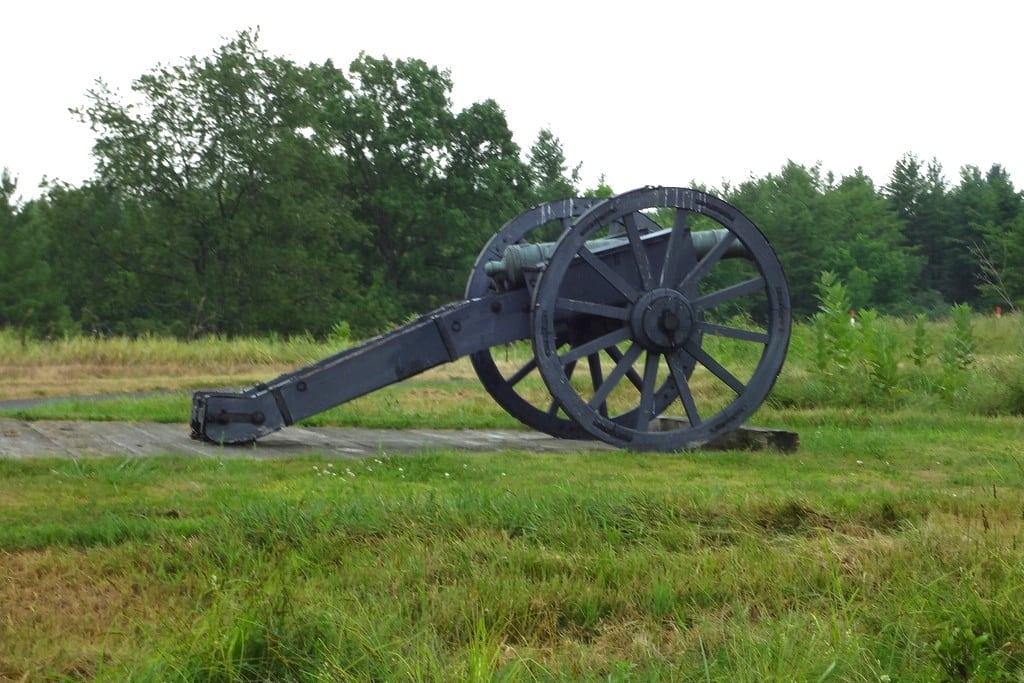The newest park in the U.S. celebrates turning point in Revolutionary War

Skift Take
The history of the world changed on a grassy knoll on a hill overlooking the upper Hudson River, although it would be some time before anyone would realize the significance of what happened there in October 1777, according to National Park Service Ranger Joe Craig.
"You had an enormous change that probably they didn't figure out at the time, but the shock waves eventually went out from there," said Craig, who works at Saratoga National Historical Park, also known as the Saratoga Battlefield.
The shock was caused by British Gen. John Burgoyne's surrender to American forces after two battles fought at Saratoga in September and October 1777. On Oct. 17, 10 days after the second battle, Burgoyne handed his sword to his counterpart, Gen. Horatio Gates, in a field atop a hill just south of the present-day village of Schuylerville, 30 miles north of Albany.
The American victory over the world's mightiest army would eventually convince France to ally itself with the rebellious colonies, which sorely needed French troops, ships and money to defeat the British. Many historians consider the outcome at Saratoga to be the turning point of the American Revolution.
On Saturday, a ceremony will be held at the sword surrender site to officially unveil a bronze sculpture that will be the centerpiece of a memorial when the property becomes part of the historical park's holdings. The 19-acre site is being donated to the park service by the Open Space Institute, which bought it in 2006 from the family that had owned it since the Revolutionary War.
The sculpture protrudes from a 6-foot-by-4-foot flat surface and is a bas relief version of John Trumbull's 1821 painting, "Surrender of General Burgoyne," which hangs in the U.S. Capitol.
The name of the new site is a bit of a misnomer because Gates only held the sword for a few moments before handing it back to Burgoyne, a common practice among generals of the era, Craig said. The rest of the British army wasn't allowed the same courtesy. Several thousand redcoats laid down their weapons at a riverside fort in what is now a park in Schuylerville.
Copyright (2013) Associated Press. All rights reserved. This material may not be published, broadcast, rewritten, or redistributed.
![]()




